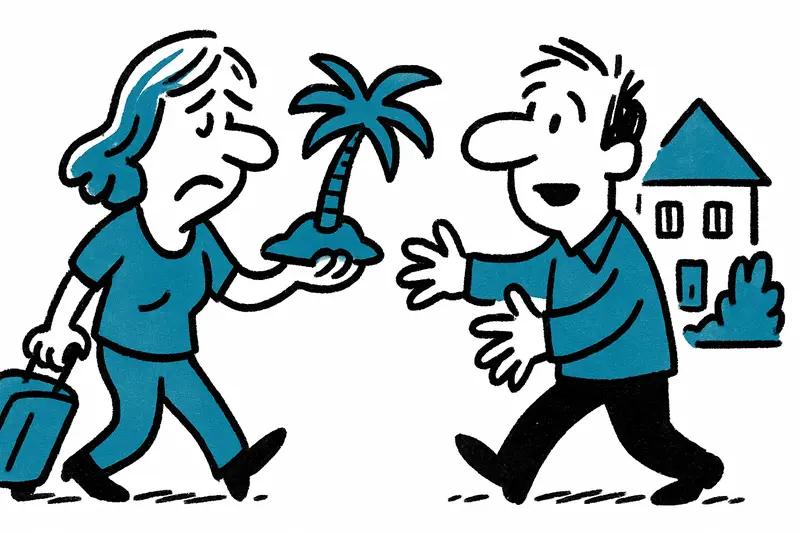After 18 years on Mallorca, a German dance teacher returns to the Harz. High prices and a new daily life moved her and her family to return.
Back in Wernigerode, Not by the Sea
Sometimes it is not the sun or the sea that makes a home, but plain everyday things: an affordable apartment, a reliable network, and enough space for children to run around. That is how Katja describes it, returning to Germany after 18 years on Mallorca and opening a dance school in Wernigerode. At first glance this may seem like an unusual switch, but if you listen more closely, you understand the decision.
How it began
In Mallorca she organized shows for a long time, including at the well-known Cala Serena club. There she also met her partner Fabricio. From this relationship came three children. But over the years a lot changed: rents and real estate prices jumped, daily life for average earners grew tighter.
Katja says they often faced the question of what remains when money barely covers the rent. I know such conversations from many corners of the island: good weather alone does not pay the bills.
A New Everyday Life in the Harz
In Wernigerode Katja now runs a dance school. Fabricio has taken over a snack stand. In the mornings around eight-thirty, she says, life suddenly feels tidier again — the children can walk to school, neighbors greet each other, and the weekly market isn’t crowded. Small joys that went unnoticed on Mallorca.
What remains open: It is not an escape from the island, but a necessary reorientation. Many who emigrate from Germany romanticize life under palm trees. Television programs help shape that image. In truth, however, some fail because of the hard numbers: rents, job market, child care.
What That Means for the Island
The story highlights a larger problem: When housing and the cost of living become increasingly unaffordable for normal earners, a community loses its diversity. Young families, artists, teachers — they all think twice about whether life on the island still fits.
Whether the return to the Harz is permanent is not yet known by those involved. But they seem relieved: More time for the children, less parking stress, and more space in the kitchen again. These are not slogans; these are practical decisions.
An Open Ending
As a local reporter I often meet people with big plans. Some stay. Others move on. Katja's path reminds us: Emigration is not a guaranteed happy ending, but a decision with many facets. Whoever comes here should do so with open eyes—and those who leave often have good reasons.
Similar News

Ferdinand Needs Help: Mallorca's Famous Farm Pig Becomes Gravely Ill
Ferdinand, Fresopolis' large farm pig, can barely walk. His rescuer is urgently seeking veterinarians and people with li...

Klopp meets Sabatini: Celebrity Padel at Mallorca Country Club
Brief report from Santa Ponsa: former coach Jürgen Klopp and tennis legend Gabriela Sabatini played in the Celebrity Pad...

Beerstreet Boys: Ballermann Acts Launch Schlager Boy Band on Mallorca
A quartet of well-known Ballermann acts aims to winkingly re-energize schlager. On Playa de Palma they experiment with h...

My Heart Drew Me to Palma: How a German-Austrian Couple Settles Here Anew
They swapped Vienna's coffeehouse for sea views: Constanze, a blind communication expert, and her partner Sven explain w...

Celebrity Big Brother: Two Mallorcan Locals in the Container – Love, Conflict and Image Maintenance
Two well-known locals from Mallorca join the new season of Celebrity Big Brother. In Mallorca, conversations at the bar ...
